Medical Technology Breakthroughs: Opinions, Issues, and Future
VerifiedAdded on 2023/01/23
|5
|918
|97
Homework Assignment
AI Summary
This assignment analyzes recent breakthroughs in medical technology, exploring the student's opinions on advancements, particularly the integration of data science and artificial intelligence. The assignment discusses the impact of technology on prolonging life, the implications of electronic health records (EHRs), and ethical considerations. The student reacts to a video discussing data usage in diagnostics and disease prevention, highlighting both the potential and unanswered questions. Key issues addressed include the high cost of the US healthcare system and the challenges of EHR implementation, such as potential threats to professionalism and patient interaction. The assignment also examines the contributions of technology to both problems and solutions within modern medicine, emphasizing the potential for personalized medicine and improved patient care through EHRs and data analysis. References to relevant research papers are included.
1 out of 5
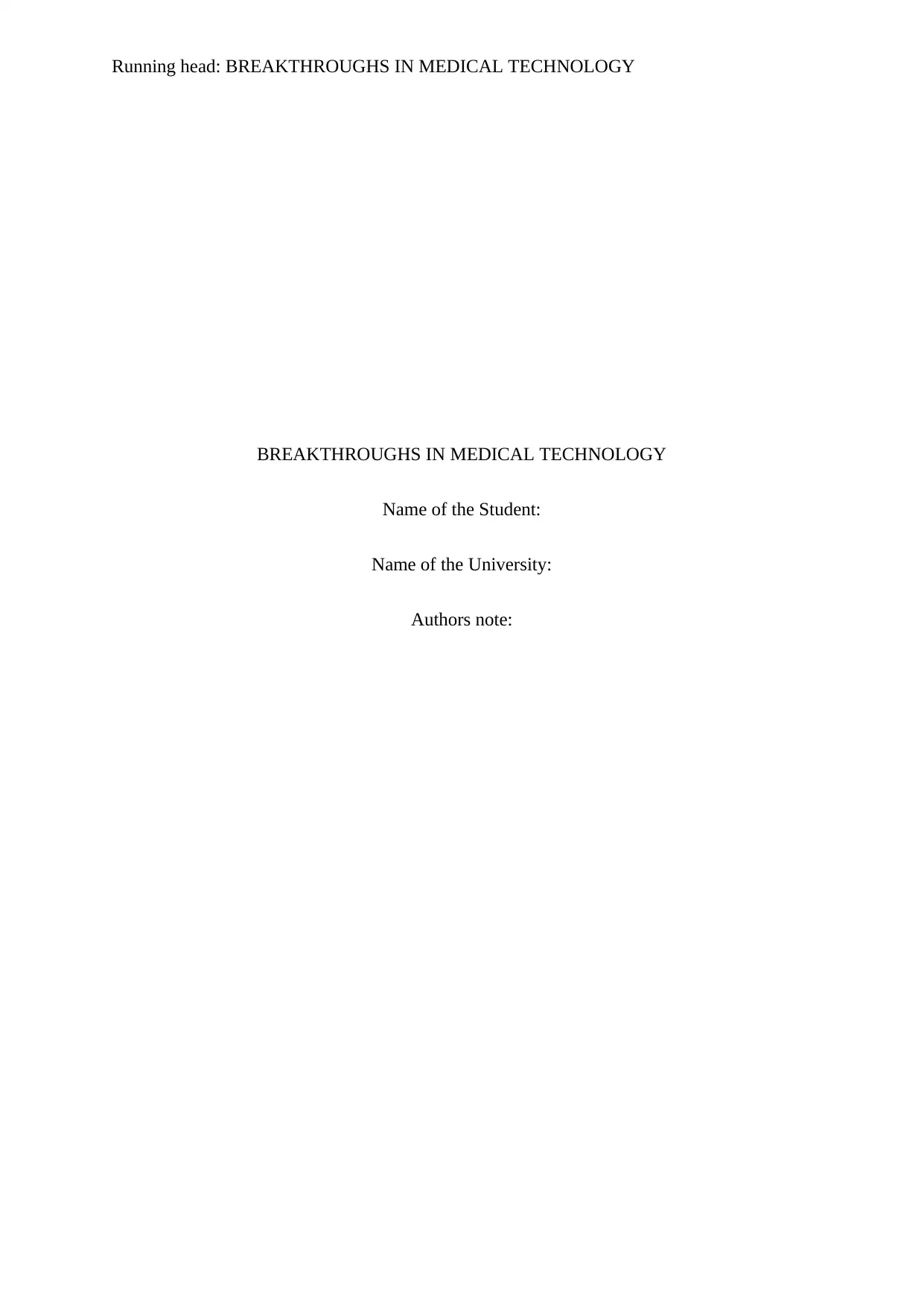
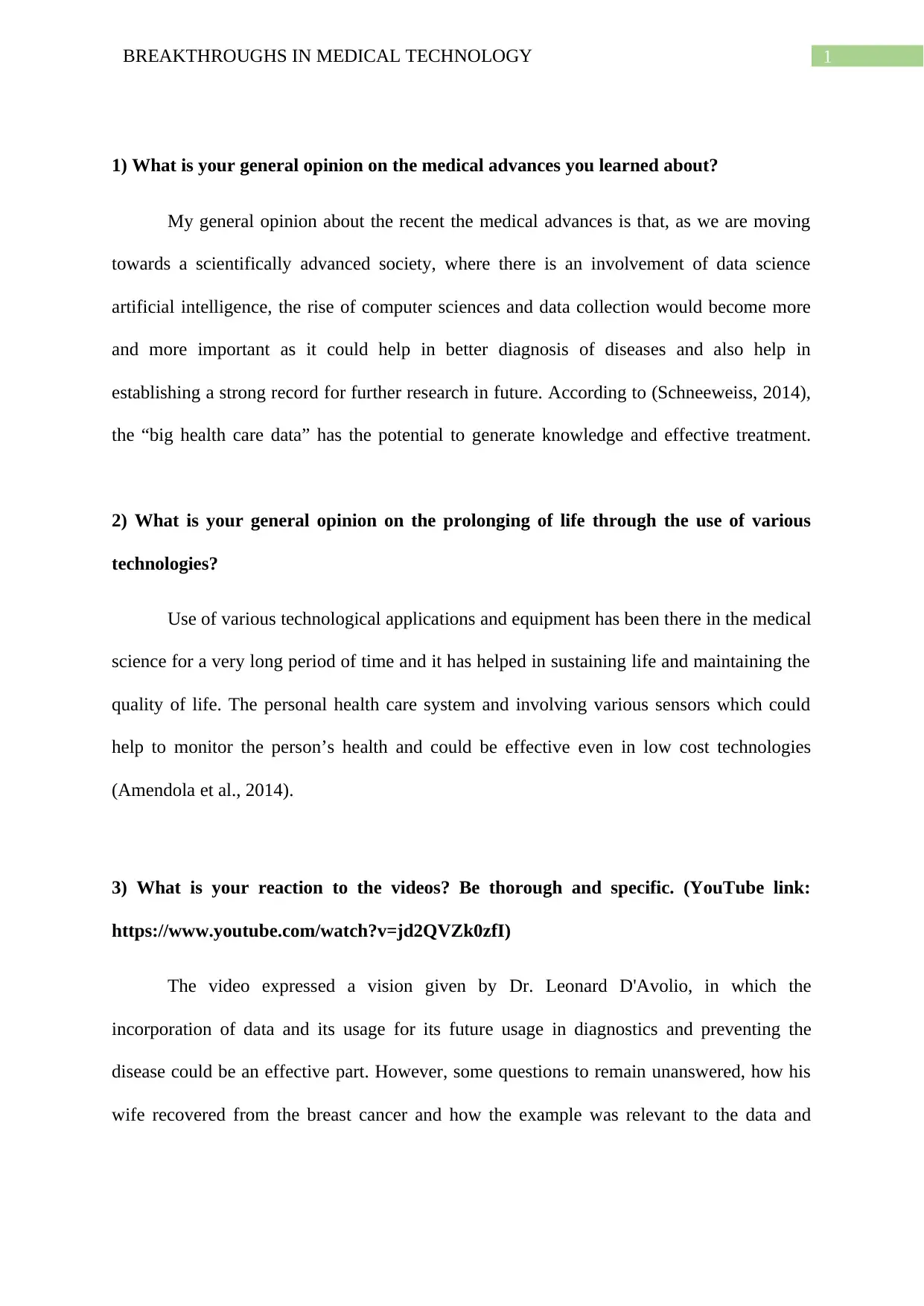
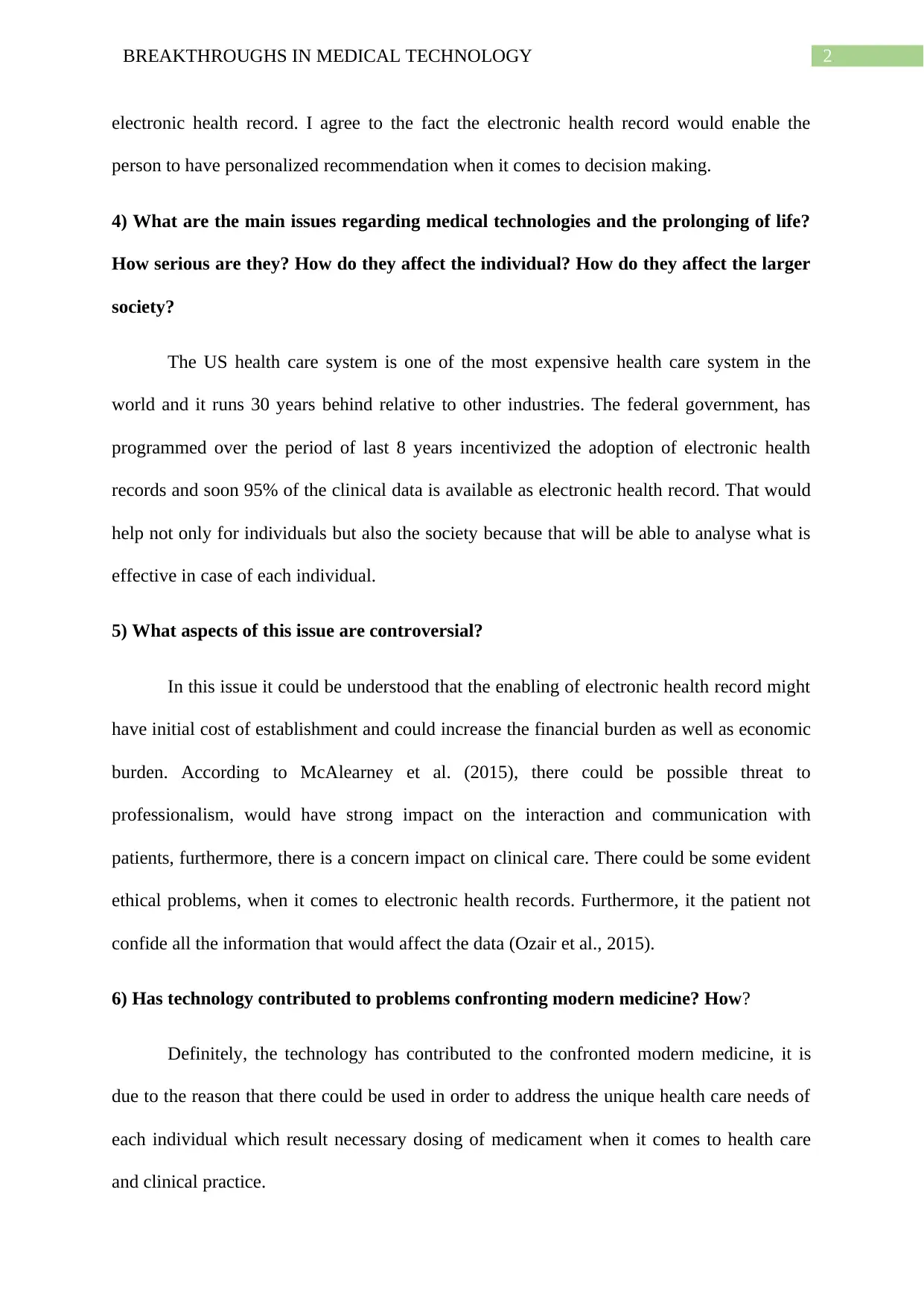
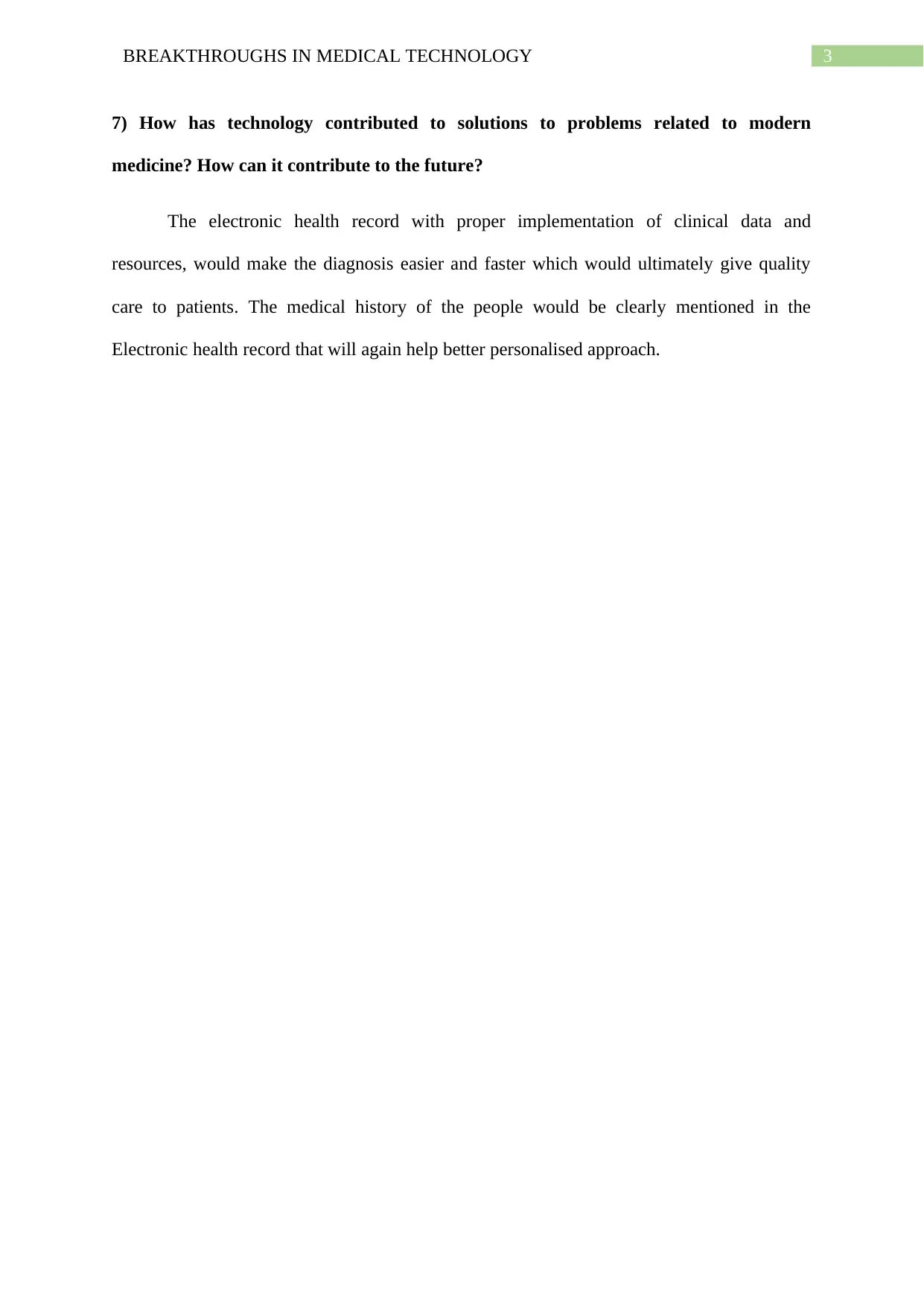
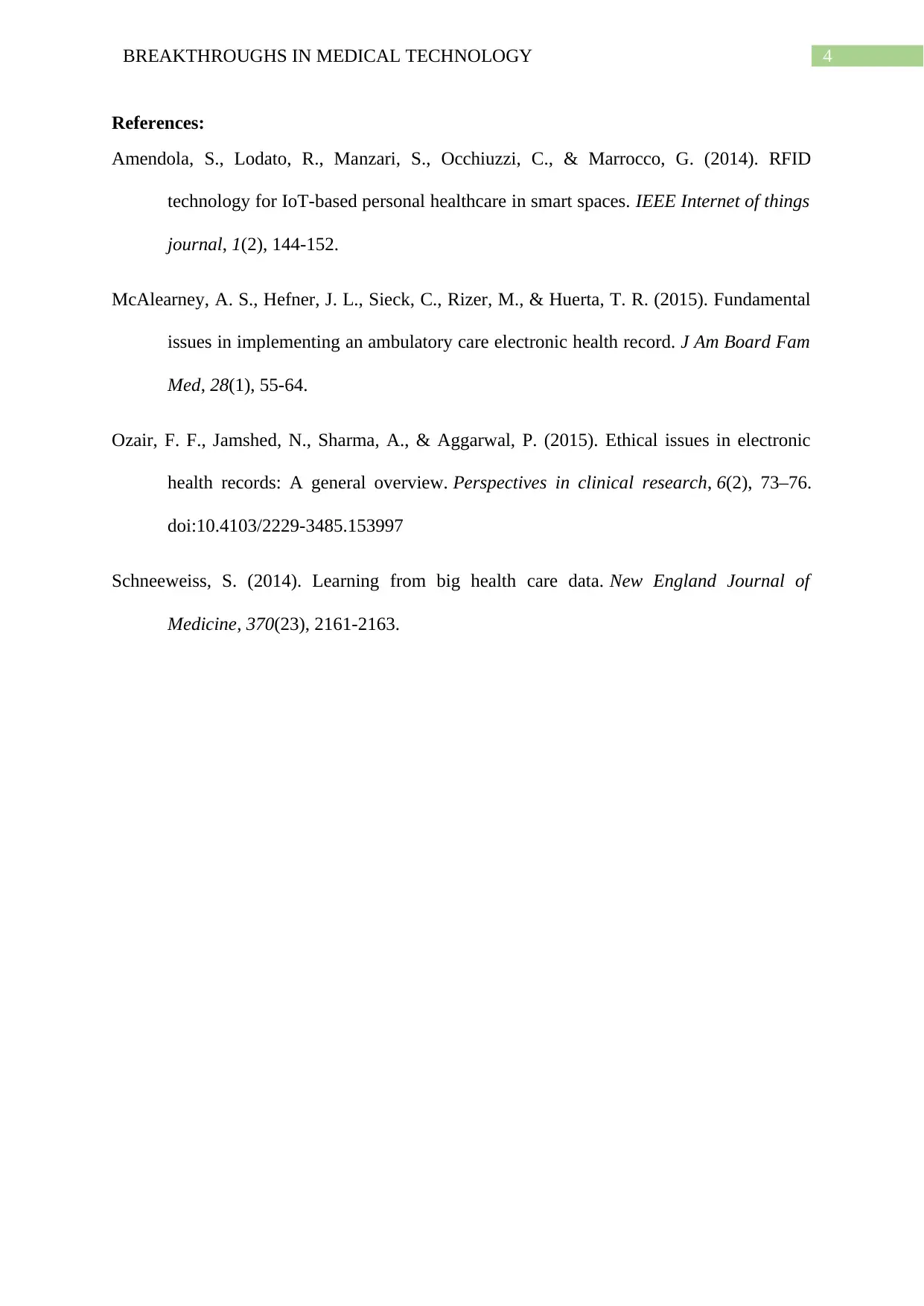






![[object Object]](/_next/static/media/star-bottom.7253800d.svg)